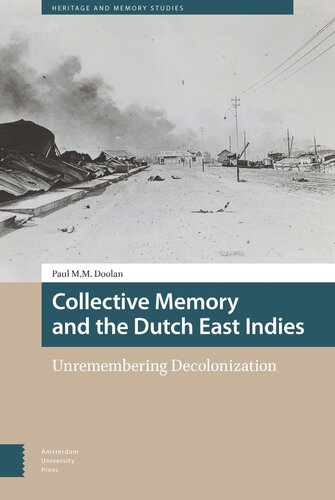

Most ebook files are in PDF format, so you can easily read them using various software such as Foxit Reader or directly on the Google Chrome browser.
Some ebook files are released by publishers in other formats such as .awz, .mobi, .epub, .fb2, etc. You may need to install specific software to read these formats on mobile/PC, such as Calibre.
Please read the tutorial at this link: https://ebookbell.com/faq
We offer FREE conversion to the popular formats you request; however, this may take some time. Therefore, right after payment, please email us, and we will try to provide the service as quickly as possible.
For some exceptional file formats or broken links (if any), please refrain from opening any disputes. Instead, email us first, and we will try to assist within a maximum of 6 hours.
EbookBell Team

5.0
68 reviewsThis book examines the afterlife of decolonization in the collective memory of the Netherlands. It offers a new perspective on the cultural history of representing the decolonization of the Dutch East Indies, and maps out how a contested collective memory was shaped. Taking a transdisciplinary approach and applying several theoretical frames from literary studies, sociology, cultural anthropology and film theory, the author reveals how mediated memories contributed to a process of what he calls “unremembering.” He analyses in detail a broad variety of sources, including novels, films, documentaries, radio interviews, memoires and historical studies, to reveal how five decades of representing and remembering decolonization fed into an unremembering by which some key notions were silenced or ignored. The author concludes that historians, or the historical guild, bear much responsibility for the unremembering of decolonization in Dutch collective memory.